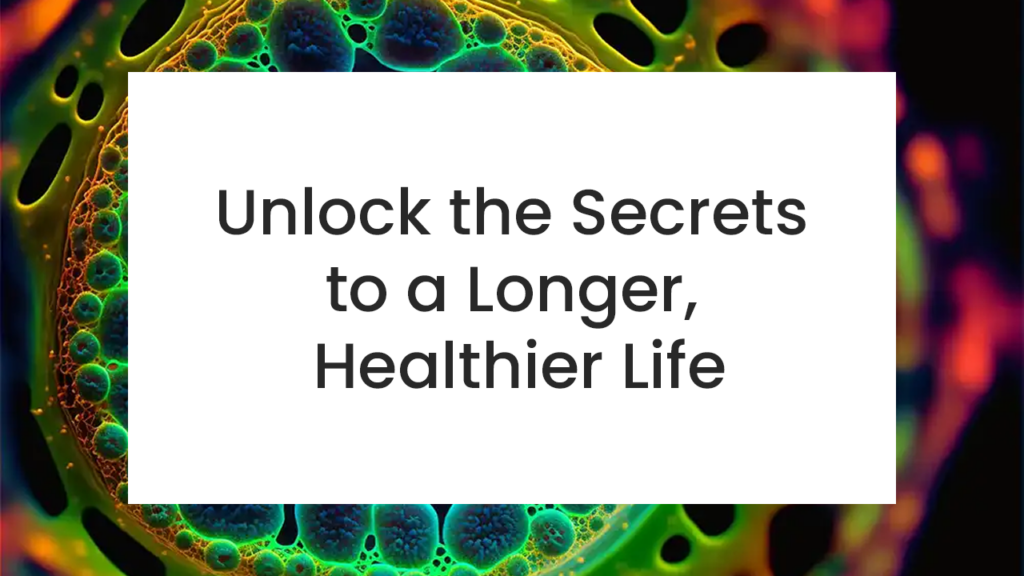In the pursuit of longevity and youthful vitality, we often explore a myriad of strategies—from skincare routines and dietary tweaks to exercise regimens and stress management techniques. Yet, amidst the array of options available, one fundamental factor lies at the heart of our biological blueprint: DNA. Our genes not only determine our physical traits but also play a crucial role in the aging process. Let’s delve into why DNA matters in the quest for anti-aging and longevity, and how understanding our genetic code can empower us to age gracefully and healthily.
The Role of DNA in Aging
Our DNA, contained within the nucleus of every cell in our body, holds the instructions for building and maintaining our entire organism. It determines traits such as eye color, hair texture, and susceptibility to certain diseases. However, our genes also influence how we age and the rate at which our cells deteriorate over time.
Telomeres: Guardians of Cellular Youth
At the tips of our chromosomes lie structures called telomeres, which act as protective caps to prevent DNA damage and maintain chromosome stability. With each cell division, telomeres naturally shorten, eventually reaching a point where they can no longer maintain their integrity. This process, known as telomere shortening, is associated with cellular aging and the onset of age-related diseases.
Genetic Variations and Aging
Beyond telomeres, our genes influence various aspects of the aging process, including:
Inflammation and Oxidative Stress: Genes involved in regulating inflammation and oxidative stress can impact how our bodies respond to environmental and internal stressors, affecting the rate of aging and disease susceptibility.
DNA Repair Mechanisms: Genes involved in DNA repair and maintenance play a critical role in preserving genomic integrity and preventing the accumulation of mutations that contribute to aging and disease development.
Cellular Senescence: Certain genes control the process of cellular senescence, in which cells cease to divide and enter a state of permanent growth arrest. Dysregulation of this process is implicated in aging-related conditions such as tissue degeneration and cancer.
Harnessing Genetic Insights for Anti-Aging Strategies
While our genetic makeup influences the aging process, it’s essential to recognize that genes are not destiny. Lifestyle factors, environmental influences, and epigenetic mechanisms—modifications to gene expression that occur without changes to the underlying DNA sequence—also play significant roles in shaping how we age.
By gaining insights into our genetic predispositions through tools such as genetic testing and analysis, we can tailor anti-aging strategies to our individual needs and optimize our lifestyle choices accordingly. For example:
Personalized Nutrition: Understanding genetic variations related to nutrient metabolism, inflammation, and oxidative stress can inform dietary choices that support optimal health and longevity.
Targeted Supplements: Genetic testing can identify specific nutrient deficiencies or genetic susceptibilities that may benefit from targeted supplementation to support cellular health and longevity.
Lifestyle Modifications: Armed with knowledge about genetic risk factors for certain conditions, individuals can implement lifestyle modifications such as stress reduction techniques, regular exercise, and adequate sleep to mitigate their effects and promote healthy aging.
Embracing the Journey to Genetic Wellness
As we unravel the intricate interplay between genetics, aging, and longevity, we are empowered to take proactive steps towards optimizing our healthspan—the period of life spent in good health and free from debilitating diseases. By honoring the wisdom encoded within our DNA and harnessing the latest advances in genetic science, we can embark on a journey of self-discovery and empowerment, unlocking the secrets to aging gracefully and living vibrantly for years to come.

